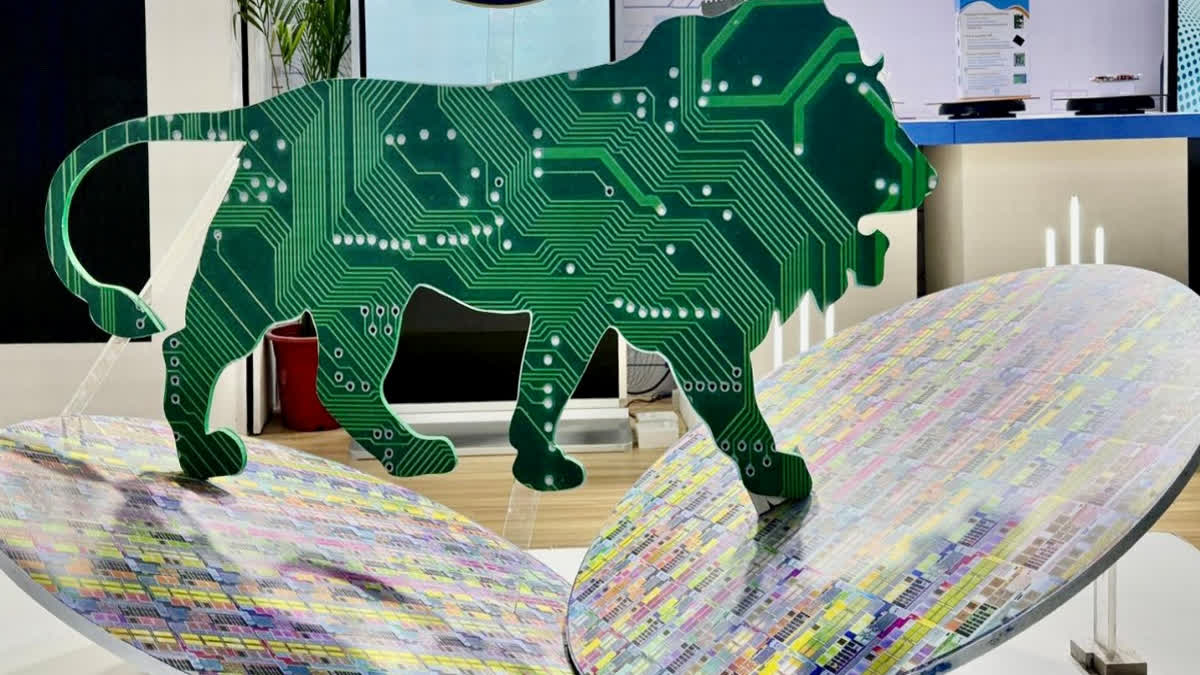New Delhi: Prime Minister Narendra Modi on Wednesday took to Microsoft-owned professional networking platform Linkedin to commemorate ten years of the government's flagship scheme Make in India which was launched on 25 September 2014 to shore up India's manufacturing sector as manufacturing and agriculture contribute to a small part of the country's GDP while services sector accounts for more than 50 per cent share in the country's economy.
"Today is an occasion to salute each and every one of you who has made this initiative a roaring success. Each of you is a pioneer, visionary and innovator, whose tireless efforts have fuelled the success of 'Make in India' and thereby made our nation the focus of global attention as well as curiosity," the Prime Minister wrote in a long format article on Linkedin.
Prime Minister Modi said it was a collective effort and its impact shows that 'Bharat' is unstoppable. "This was an effort that began ten years ago with an ambitious aim - to increase India's strides in manufacturing, to ensure that a talented nation as ours is not merely an importer but an exporter as well," he said. Prime Minister Modi said that the impact of this programme is visible across sectors.
Transformative impact on domestic manufacturing of mobile handsets
He cited several examples to showcase the success of his favourite manufacturing promotion scheme, particularly the rapid growth in the domestic manufacturing of mobile phones in the country.
"In 2014, we had only two mobile manufacturing units in the entire country. Today, that number has risen to over 200. Our mobile exports have skyrocketed from a mere Rs 1,556 crore to an astounding Rs 1.2 lakh crore – a mind-boggling 7500 per cent increase. Today, 99% of mobile phones used in India are Made in India. We've become the second-largest mobile manufacturer globally," wrote the Prime Minister.
India, being the world's most populous country, has traditionally been a big importer of mobile phones, particularly mobile handsets imported from China.
Even today, India's mobile handset market is dominated by Chinese players such as Xiaomi, Oppo, Vivo, and Itel among others though many of them are manufacturing in the country as is the case with South Korean tech giant Samsung, who has set up a large production facility in the vicinity of national capital Delhi.
Steel sector
The other success story the Prime Minister talked about is domestic steel manufacturing. The Prime Minister said: "Look at our steel industry – we have become a net exporter of finished steel, with production increasing by over 50% since 2014."
In addition to mobile handset manufacturing and the steel industry, renewable energy is another area where Prime Minister Modi's government has been trying to push domestic manufacturing.
He said, "In renewable energy, we are the 4th largest producer globally, with capacity increasing by 400 per cent in just a decade. Our electric vehicle industry, practically non-existent in 2014, is now worth $3 billion."
The Prime Minister also talked about India's efforts to bolster the country's defence production under another flagship scheme – the Self Reliant India (Atma Nirbhar Bharat) scheme which was launched in the wake of the COVID-19 global pandemic to reduce the country's dependence on imports in critical sectors of the economy, including defence sector.
He said India is not only working to become self-reliant in the defence sector but it is also exporting its defence hardware to more than 85 nations as the country's defence exports have soared from Rs 1,000 crores to Rs 21,000 crores in recent years.
India’s big push for semiconductor manufacturing
Global supply chain disruptions were caused by the COVID-19 global pandemic and later by the Russia-Ukraine war in Europe. As a result, India's automotive sector production was badly affected in 2021. It showed India's vulnerability and over-reliance on imported chips or semiconductors that today power most of the electronic items such as mobile phones, tablets, laptops, and also automobile and household items such as televisions, fridges, washing machines and air-conditioners among other things.
Talking about India's recent efforts to draw global chip assemblers and producers to the country, the Prime Minister said India's semiconductor manufacturing sector has attracted investments worth over Rs 1.5 lakh crore.
"With five plants approved that will have a combined capacity of more than 7 crore chips per day," he said.
Toy sector
Reminiscing about his monthly radio talk show - ‘Mann Ki Baat’, Prime Minister Modi said that he had already spoken about the need to have a vibrant toys industry in this radio talk show. "Our people showed how that is done. Over the years, we have seen exports increase by 239 per cent, with imports halved, particularly benefiting our local manufacturers and sellers, not to mention the little children as well," he said.
Prime Minister Modi also talked about swanky Vande Bharat trains as a shining example of the success of the Make in India programme. "Many of the icons of today's India – our Vande Bharat trains, BrahMos missiles, and the mobile phones in our hands – all proudly bear the Make in India label. From electronics to the space sector, it represents Indian ingenuity and quality," he said.
Talking about the scheme's positive impact on the country's medium and small industries (MSME sector) that employ the bulk of manpower in the manufacturing sector, the Prime Minister said its impact on the MSME sector was notable.
The road ahead - Production Linked Incentive (PLI) scheme
Prime Minister Modi said his government was committed to making this spirit even stronger in his third term. "The Production Linked Incentive (PLI) schemes have been game changers, enabling investments of thousands of crores and generating lakhs of jobs. We have also made significant strides in ease of doing business," said the Prime Minister.
Read More



